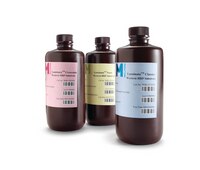Implication of RPA32 phosphorylation in S-phase checkpoint signalling at replication forks stalled with aphidicolin in Xenopus egg extracts.
Recolin, Bénédicte and Maiorano, Domenico
Biochem. Biophys. Res. Commun., (2012)
2012
요약 표시
Activation of the replication checkpoint relies upon uncoupling of DNA polymerases and helicase activities at replication forks, which in multicellular organism results in production of long stretches of single-stranded DNA bound by the trimeric, single stranded DNA binding protein, the RPA complex. Binding of RPA to this substrate promotes synthesis of replication intermediates that contributes to checkpoint activation by allowing binding of the 9-1-1 checkpoint clamp. The RPA32kDa subunit is also phosphorylated during this process but its role in checkpoint signalling is unclear. Here we have investigated the requirement for RPA32 phosphorylation in checkpoint activation in Xenopus egg extracts. We show that phospho-deficient mutants of RPA32 stimulate checkpoint signalling at replication forks arrested with aphidicolin at both the initiation and the elongation step of DNA replication, without affecting DNA synthesis. In contrast, we show that phospho-mimetic RPA32 mutants do not stimulate checkpoint activation at unwound forks. These results indicate that the hypophosphorylated, replication fork-associated form of RPA32 functions in S-phase-dependent checkpoint signalling at unwound forks in Xenopus egg extracts while RPA32 phosphorylation may be implicated in other pathways such as repair or restart of arrested replication forks. | 23047005
 |










 AB[216864-ALL].jpg)




